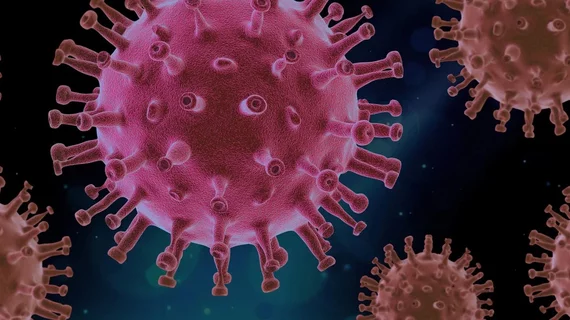Abdominal imaging reveals bowel injuries in COVID-19 patients
A number of studies have shown how COVID-19 can impact a patient’s lungs, but new research suggests individuals may experience bowel abnormalities as well.
Boston-area physicians retrospectively looked at more than 400 patients admitted to a single center to reach their conclusions, published May 11 in Radiology. They found that abnormalities were most commonly seen in sicker patients with the coronavirus who were also admitted to the intensive care unit.
Overall, injuries were wide-ranging and varied according to individual imaging modalities. But with further research, clinicians may better understand the “abdominal manifestations” in those who are infected, said study author Rajesh Bhayana, MD, abdominal imaging fellow at Massachusetts General Hospital’s Department of Radiology.
“Some findings were typical of bowel ischemia, or dying bowel, and in those who had surgery we saw small vessel clots beside areas of dead bowel,” Bhayana said in a statement. “Patients in the ICU can have bowel ischemia for other reasons, but we know COVID-19 can lead to clotting and small vessel injury, so bowel might also be affected by this.”
As part of their study, Bhayana et al. included patients who tested positive for severe acute respiratory syndrome coronavirus between March 27 and April 10. With an average age of 57 years, 17% of individuals had cross-sectional abdominal imaging, which included 44 ultrasounds, 42 CT scans and one MRI.
In total, 31% of CTs showed bowel abnormalities, which represented 3.2% of all patients involved in the study. Findings included thickening and ischemia-related discoveries such as pneumatosis (gas in the bowel wall) and portal venous gas. In two individuals who had bowel resection, the team found ischemia with patchy necrosis, and both had injuries that suggested bowel ischemia may be caused by small blood clots.
There are a number of potential explanations for this laundry-list of findings, the authors noted, including direct viral infection, small vessel thrombosis, or nonocclusive mesenteric ischemia. But one thing is for sure: More studies are required to determine if SARS-CoV-2 plays a direct role in bowel or vascular injury in those with COVID-19.

